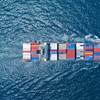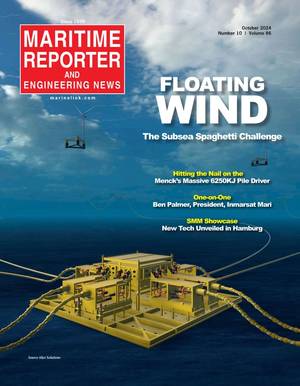Italy Ending Med Sea Rescues
Rights groups warn of risk of more deaths; EU mission Triton will have more limited scope.
Italy said on Friday it would close a sea rescue mission that has saved the lives of more than 100,000 migrants from Africa and the Middle East, a move one rights group warned could lead to a "surge of deaths" in the Mediterranean.
Interior Minister Angelino Alfano said the Mare Nostrum or "Our Sea" mission would end to make way for a smaller European Union scheme - and to help relieve the strain on Italy's public finances amid a three-year economic slump.
"Mare Nostrum is closing down because it was an emergency operation," Alfano told a news conference.
The Italian navy began Mare Nostrum just over a year ago when more than 360 men, women and children - mostly Eritreans - drowned when their overcrowded boat capsized a mile off the Sicilian island of Lampedusa.
Even with five warships on permanent patrol in the waters between Sicily and North Africa -- backed up by helicopter, plane and drone surveillance -- about 3,300 migrants have died attempting the crossing this year, the U.N. refugee agency estimates.
Alfano said Italy had spent 114 million euros to operate the mission over the past year and the closure would reduce spending "to zero".
Italy would still respect the rules of the sea and respond to SOS calls, he said, adding that cutting spending would not necessarily lead to more tragedy.
"The number of people who die is not proportionate to the number of euros spent," Alfano said.
Human rights activists warned that the closure was likely to lead to many more people drowning.
"There are no alternative routes to reach Europe, and conflicts are on the rise not only in Syria but also Iraq and other places. So there will be a greater risk of more sea tragedies without Mare Nostrum," Stefano Di Carlo, Doctors Without Borders operational chief in Italy, told Reuters.
"There is a very high risk is that there will be a surge of deaths at sea," said Riccardo Noury, an Italian spokesman for Amnesty International.
Most of those seeking to enter Europe through Italy via the Mediterranean are refugees, including tens of thousands fleeing Syria's civil war and a similar number escaping forced military conscription in Eritrea, the U.N. refugee agency says.
People smugglers have taken advantage of Libya's political instability and lawlessness to send convoys off its coast, making as much as a half million dollars from each overcrowded and rickety boat, according to Interior Ministry estimates.
TRITON
Italy has long called for the EU to do more to help migrants. Earlier this month, Rome finally agreed to start working with a more limited rescue mission called Triton, overseen by EU border control agency Frontex.
Twenty-one EU countries are contributing, but the mission will be limited to patrolling the waters within 30 nautical miles from the Italian coast, while Mare Nostrum reached all the way across the Mediterranean to the coast off Libya.
Any migrants picked up will still be brought to Italian ports and housed in immigration centres, though the vast majority of those who have been rescued over the past year did not stay in Italy for long, moving quickly onto other EU countries.
Earlier this month, speaking on the anniversary of the Lampedusa tragedy at a meeting of his left-wing party faithful in northern Italy, Renzi said Mare Nostrum would not be abandoned until "the EU comes up with something just as good or better".
Noury at Amnesty said it was "clear" that Renzi had broken his word.
"He was speaking to a crowd that wanted to hear those things, but today Alfano said the opposite. There's no coherence between what Renzi promised and what happened today," Noury said.
By Steve Scherer and Massimiliano Di Giorgio













